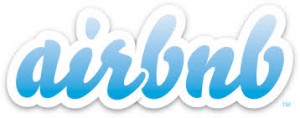危 wēi danger
One of the greatest challenges when launching new products and services is to get noticed without breaking the bank. AirBnB, a platform for hosts to rent spare rooms and other short-term lodging to guests, was no different. The startup was born when the Founders and roommates could not afford the rent on their loft in SF and turned their living room into a bed and breakfast, accommodating three guests on air mattresses (hence the name). The startup was bootstrapped for the first few years, in part by selling Obama themed breakfast cereal (see video below), there was certainly no big budget to advertise on the large established property rental sites. Somehow AirBnB had to create significant demand from both hosts and guests – given that rentals were dominated by powerful sites such as Craigslist surely they would never ever be able to scale demand enough?
机 jī opportunity
Instead of giving up in the face of Craigslist, AirBnB wondered how it might harness it as an opportunity – to attract both hosts and guests. In order to drive interest from guests AirBnB integrated with Craigslist, enabling people to push ads for their AirBnB rentals onto Craigslist, including better photos and descriptions than they would otherwise have achieved. AirBnB also allegedly contacted people who posted Craigslist rental ads and encouraged them to place their ads on AirBnB too. Specifically, AirBnB generated an email from a young lady who said that AirBnB was a great site and that they should list their rental on it too. The email, which was almost certainly automated, included a direct link enabling the host to check it out.
There are some ethical and legal questions around these two approaches, particularly the latter but they enabled AirBnB to harness a platform with tens of millions of users. Craigslist became a low-competition, huge-volume marketing channel. It was a win-win for everyone involved (except CraigsList) – the hosts renting out their places would tap into pre-built demand, and guests enjoyed much nicer listings with better photos and descriptions. Amazingly, this was all achieved with no public Craigslist API.
Since its launch in 2008 AirBnB has gone from strength to strength – as of November 2012, the company had over 250,000 listings in 30,000 cities and 192 countries.
TL;DR / How About…
- Pushing content into other platforms at scale as a means of building demand for your service?
- Creating a service that makes it easier for users to publish content to other platforms, thereby creating your own userbase?
I couldn’t resist posting the ‘Obama-O’ jingle too:
Read more on this on Andrew Chen’s great blog here and on Business Insider here

One Response to “78) AirBnB – support users where they congregate”
Matt Connelly
The big wheel keeps on turning. AirBNB hosts are our best customers so we use similar tactics to get in touch with them.
Like the about a service making easy to publish to other airbnb type platforms – might be an idea for us